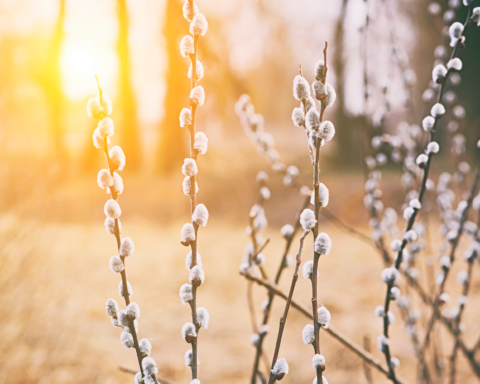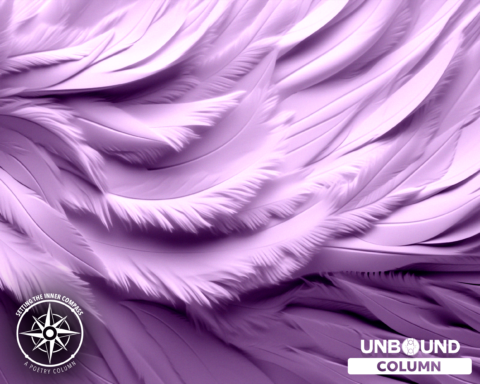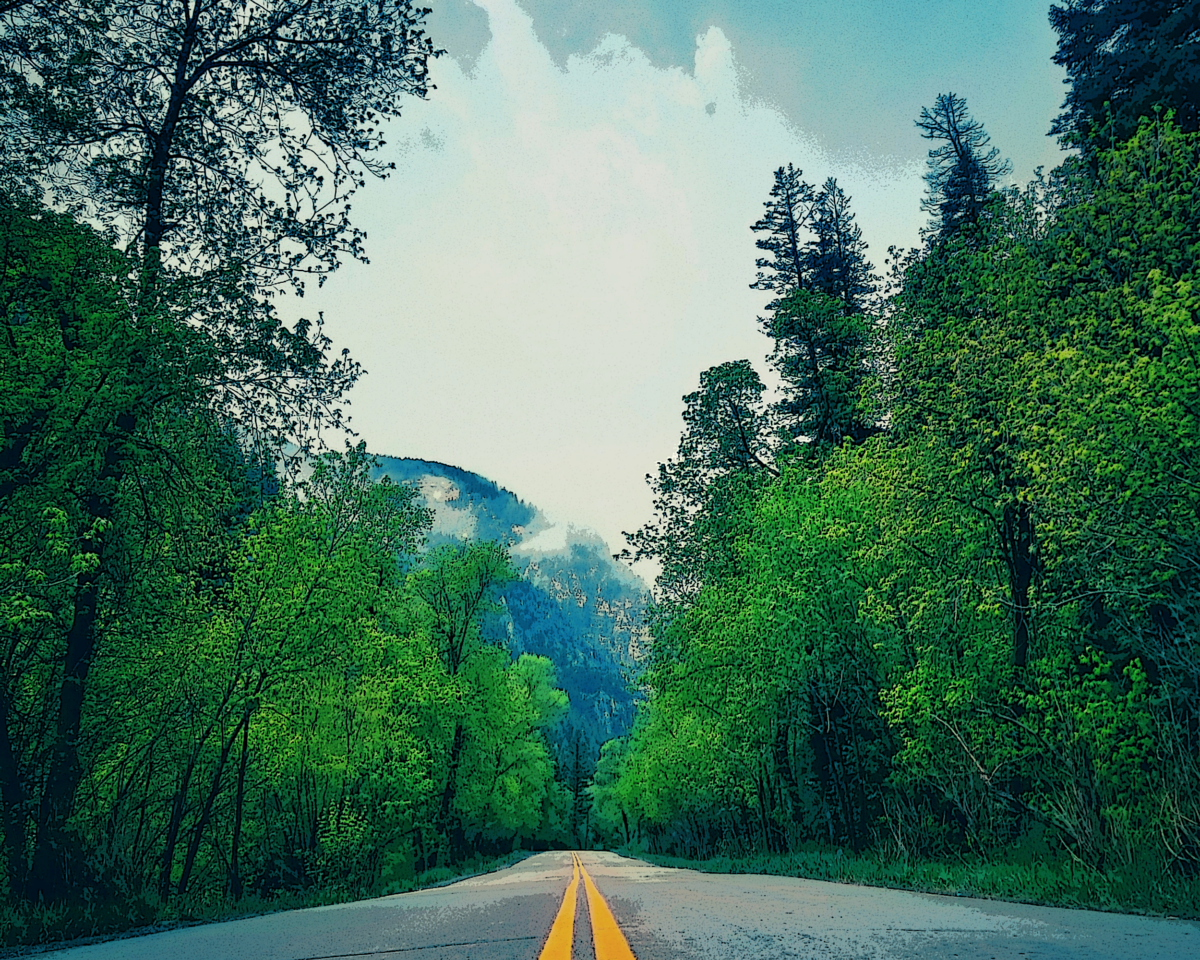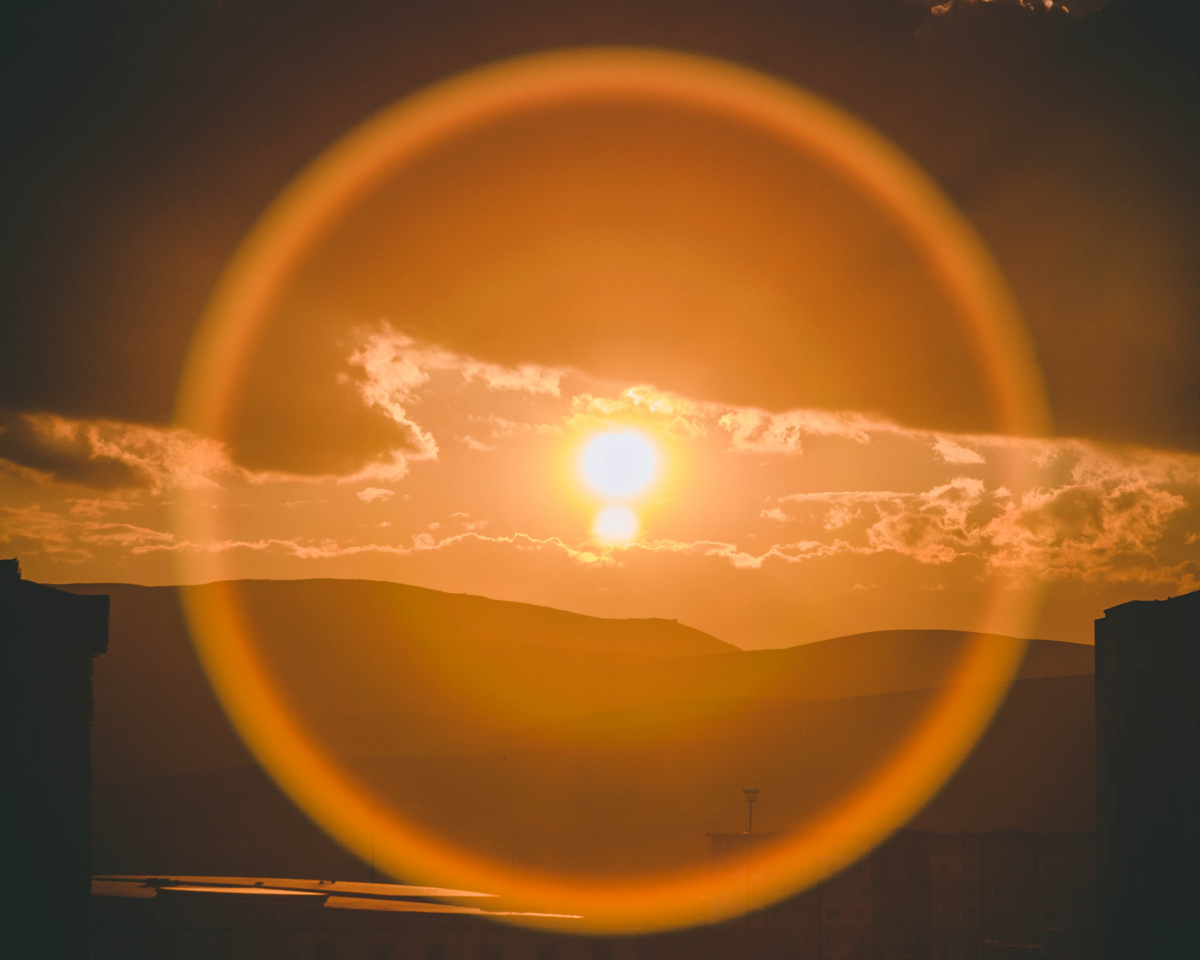Reading poetry is one of the ways some of us nourish our faith, a way we set or reset our inner compass and stay focused on the big picture, on the spiritual journey. I know that is true for me. In this monthly column, Setting the Inner Compass, I share some of the poems I find nourishing to the soul.
The poems this month reflect the moods of the month of January. Despite the fact that winter solstice is past, and the days are actually getting longer, January, especially in the Pacific Northwest always has been, at least for me, a challenging dark, wet month. The lights of Christmas are put away and the green signs of spring are still ahead of us. This feels particularly true in January 2021. The pandemic and lives lost, insurrection in Washington, persistent systemic racism, and the deep divisions in the country, I could go on. For many I talk to there is no denying this is a hard, hard season.
One way to move through these dark days of January is to try in one way or another to embrace the darkness and find what gifts there may be in a dark season. As the poet Theodore Roethke says, “In a dark time, the eye begins to see.” [1] Wendell Berry also invites us to see the darkness in a new way, “To know the dark, go dark. Go without sight and find that the dark too blooms and sings.” [2] Barbara Brown Taylor explores this theme in her book, Learning to Walk in the Dark. I recommend it.
Onward to the poems. In the first two poems by David Budbill, he invites us to embrace winter as a time for introspection and spiritual renewal. The third poem, “Those Winter Sundays,” is by Robert Hayden. Hayden (August 4, 1913 – February 25, 1980) was an American poet, essayist, and educator. He served as Consultant in Poetry to the Library of Congress a role today known as US Poet Laureate. He was the first African-American writer to hold the office. I am writing this on January 19, the last poem is by Barbara Crooker and seemed particularly appropriate. Barbara’s last collection, Some Glad Morning (University of Pittsburgh Press) was published in 2019. “How to Choose Love in a Time of Hate” is from a manuscript in progress called Slow Wreckage and has not appeared in any journal so far. Thank you, Barbara, for allowing us to share this new poem.
Peace,
Dave
THE POEMS
Winter is the Best Time by David Budbill
Winter is the best time.
to find out who you are.
Quiet, contemplation time,
away from the rushing world,
to see that inner landscape
that place hidden within.
Winter: Tonight: Sunset by David Budbill
Tonight at sunset, walking on the snowy road,
my shoes crunching on the frozen gravel, first
through the woods, then out into the open fields
past a couple of trailers and some pickup trucks, I stop
and look at the sky. Suddenly: orange, red, pink, blue,
green, purple, yellow, gray, all at once and everywhere.
I pause in this moment at the beginning of my old age
and I say a prayer of gratitude for getting to this evening,
A prayer for being here today, now, alive
in this life, in this evening, under this sky.
Those Winter Sundays by Robert Hayden
Sundays too my father got up early
and put his clothes on in the blueblack cold,
then with cracked hands that sched
from labor in the weekday weather made
banked fire blaze. No one ever thanked him.
I’d wake and hear the cold splintering, breaking.
When the rooms were warm, he’d call,
and slowly I would rise and dress,
Fearing the chronic angers of that house,
Speaking indifferently to him,
who had driven out the cold
and polished my good shoes as well.
What did I know, what did I know
of love’s austere and lonely offices?
HOW TO CHOOSE LOVE IN A TIME OF HATE by Barbara Crooker
Lookin’ for hope in a hopeless world,
Tryin’ to find love in such hateful times.
Widespread Panic
Never use his name plus “the president” in the same sentence.
Better yet never say his name at all.
Even when you’re playing cards and have a strong suit—call it
orange. Then, when you’re void, you can orange the trick.
The trick to surviving this is to not give up. And vote as if
your life depends on it. Because it does and will.
This damage will take generations to repair. The arc of history
is long, but it will bend. When in public, bend over backwards
to let others in line or open the door for someone in a red
ball cap. When driving, let the other guy merge in your lane.
None of us are going to get there any sooner. Like it or not,
we’re in this together. Speak out but do it gently. Even
a single candle can pierce the darkness. Remember that the sun
comes up every morning, and there will be another chance.
Find one small slice of beauty every day: a scarlet tree, blue
October sky, a blue jay feather in the lawn, goldenrod wild
in a field. The sun’s last light, dyeing the sky peach, lavender,
carnation. The night sky glittered with stars.
Memorize the flight patterns of birds, for they are leaving us.
Nurture the earth she is our mother. Make compost, plant a tree.
Even if you can only make a small difference, together we can change
things. Meet anger with kindness, a drop of honey in bitter tea.
[1] From his poem “In a Dark Time”
[2] From the book Terrapin: Poems by Wendell Berry
CREDITS
“Winter is the Best Time” and “Winter: Sunset: Tonight” from While We’ve Still Got Feet. Copyright ©by David Budbill. Used with permission of the permissions Company, LLC on behalf of Copper Canyon Press, www.coppercanyonpress.org.
“Those Winter Sundays” excerpted from Collected Poems of Robert Hayden. Copyright ©1985 by Emma Hayden. Used by permission of the publisher, Liveright Corporation, a division of W.W. Norton & Company Ince. All rights reserved.
“How to Choose Love in a Time of Hate” is used in Unbound with permission of the poet.
Rev. Dave Brown is a writer, creator/host of Blues Vespers, one of the PNW Interfaith Amigos and former pastor of Immanuel Presbyterian Church, Tacoma, WA. He serves on the PCUSA Education Roundtable. ( [email protected]).






Unbound Social